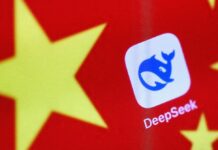Harris is viewed as “reasonably friendly” to the tech industry — even in a Democratic Party that is increasingly eager to regulate and perhaps even break up some of the largest players, said Bradley Tusk, a venture capitalist who invests in startups in highly-regulated industries.
“Ultimately I have to guess she will be a quiet ally for them behind the scenes,” said Tusk, who previously worked in Democratic politics.
Harris was an early favorite for the Democratic presidential nomination among some top players in Silicon Valley. She’s also the first Californian since Ronald Reagan to gain a spot on a major national ticket.
Her selection could boost the Biden campaign’s efforts to generate support among wealthy players in the tech industry.
Tech elites donated to Harris for years as she built her career in California politics, and many in Silicon Valley are ready to open their pocketbooks, said Sam Altman, the former president of Y Combinator who has donated to Democratic politicians.
Biden struggled throughout the primary to generate enthusiasm of many working in the industry — even though the Obama administration had strong ties to Silicon Valley and many former administration officials now work in key positions at top companies.
Altman noted Biden is “doing well here already” as many in the largely liberal region throw their support behind the former vice president, and allies of large tech companies increasingly join his campaign. Cynthia C. Hogan, a former lobbyist and government affairs executive at Apple, helped to lead Biden’s vice-presidential selection process.
Yet Harris’s cozy relationship with the tech industry could have a downside.
Momentum is growing among liberal Democrats to crackdown on the tech industry and ensure wealth is more evenly distributed. Harris’s years-long ties to tech elites risks making her – and by association the Biden campaign – appear beholden to Silicon Valley donors.
Industry insiders widely celebrated Harris’s nomination on social media — a potential liability in this election cycle.
Sheryl Sandberg, the chief operating officer of Facebook, posted on Instagram to celebrate Harris’s nomination. Sandberg said she hoped Harris, the first Black woman and Asian American to gain a spot on a major-part national ticket, would inspire more Black women and girls to run for office.
Laurene Powell Jobs, the president of the Emerson Collective and widow of Apple founder Steve Jobs, praised the decision on Twitter:
Reid Hoffman, the founder of LinkedIn, said:
Other longtime donors to Harris include Salesforce chief executive Marc Benioff, former Yahoo chief executive Marissa Mayer and Napster founder Sean Parker.
Harris has been less aggressive than others in the Democratic Party in calling to regulate tech companies.
Other Democratic presidential candidates, in a charge led by Sen. Elizabeth Warren (D-Mass.), called to break up Amazon, Apple, Facebook and Google on the primary campaign trail. But Harris never went that far.
“Overall, you don’t get the sense that in her heart of hearts she’s a crusader to break up big companies,” Tusk said. “Elizabeth Warren like wakes up in the middle of the night thinking about how to break up Facebook. My guess is for Harris it’s one of a hundred issues on a policy checklist, but that’s about it.”
Harris told the New York Times in an interview that her first priority would be regulating the tech companies to preserve consumers’ privacy, shifting the conversation away from antitrust when asked if she thought it was time to break up tech giants like Facebook and Amazon.
“My first priority is going to be to ensure that privacy is something that is intact, and that consumers have the power to make decisions about what happens with their personal information and that it is not being made for them,” she told the Times.
Tusk also noted that as a senator from California, Harris probably is more attuned to the role tech companies play in creating jobs in the American economy.
To be sure, it’s unclear what role Harris could have in decisions to break up tech companies if she’s vice president, as much of that work would likely fall to a Democrat-run Federal Trade Commission or Justice Department. However Harris’s years-long ties to tech industry elite could at least mean they have a powerful player in the administration who might answer their calls, Tusk said.
Harris, however, hasn’t shied away from criticizing the social media companies.
The senator sparked one of the most prominent tech policy debates during the Democratic primary when she called for Twitter to suspend President Trump’s account for tweets she believed violated the company’s policies on violence and harassment. She’s joining the ticket as the Biden campaign continues to keep pressure on Facebook, Twitter and other tech giants to take a harder line on Trump’s rhetoric that appears to violate their community guidelines or terms of service.
She also has proved to be one of the toughest questioners of tech executives on Capitol Hill. Her questioning of Mark Zuckerberg during his 2018 appearance was widely noted as one of the most intense grillings in a day where lawmakers were otherwise panned for their lack of basic knowledge about how Facebook worked.
Rant and rave
Here’s what the news spreading on Twitter looked like:
Biden even managed to roll out the news to voters via text message with no leaks, digital Democratic strategist Emmy Bengston pointed out:
Biden’s decision to Zoom with Harris to share the announcement was fitting for a campaign season that has been pushed online by the coronavirus pandemic. But the historic photo had many folks wondering…what is Biden doing with his phone?
Power Up reporter Jacqueline Alemany:
Our top tabs
TikTok skirted Google privacy protections, leaving users unable to opt out of online tracking.
The potential breach in user trust could add to the heavy scrutiny TikTok is already under in the United States. Trump has signed an executive order targeting the app in light of national security concerns that it could share U.S. user data with China. France’s privacy watchdog is also investigating the app’s data practices ahead of the company launching a headquarters in the European Union, where data privacy laws are much more stringent than in the United States.
TikTok says the Chinese government has never asked it to share U.S. user data and it would not comply if asked.
TikTok is “committed to protecting the privacy and safety of the TikTok community,” a representative said in a statement to the Journal. “Like our peers, we constantly update our app to keep up with evolving security challenges.”
Google said it was investigating the Journal’s findings.
Facebook removed 7 million posts spreading coronavirus misinformation between April and June.
The company put warning notes labeling 98 million other posts as misleading, Rachel Lerman reports. The removals highlight Facebook’s more aggressive push against coronavirus misinformation than other harmful content on its service.
Facebook says that some other violations, such as infractions of its rules about nudity, saw fewer removals due to its moderators being sent home in March.
Takedowns for other infractions, such as hate speech, more than doubled from just over 9 million removals in the first quarter to more than 22 million removals this past quarter. Facebook attributed the increase in removals in part to the increased use of automated systems.
Facebook also announced it would expand its definition of hate speech to include content depicting blackface and some Jewish stereotypes.
The company also said it will start allowing for independent audits of its reports, something that civil rights advocates, state attorneys general and lawmakers have called for.
“No company should grade its own homework, and the credibility of our systems should be earned, not assumed,” Facebook technical program manager Vishwanath Sarang wrote in a blog post announcing a request for proposals for the audit.
Inside the industry
Google will automatically install California’s earthquake-detecting app into Android phones.
The system, which is opt-in, is Google’s first step toward creating its own alert system powered by Android phones, Dieter Bohn at the Verge reports. Instead of just relying on seismometers monitored by the government, the system will eventually detect potential quakes using the accelerometers built into Android phones. The company will start by including its results in Google search and eventually use the data to send out its own notifications.
Airbnb plans to file to go public this month.
The company plans to file paperwork with the Securities and Exchange Commission later this month, the Wall Street Journal reports. The company could begin trading as early as this year. Airbnb announced plans to go public last November, but the plans were seemingly put on hold as the home-sharing platform’s business plummeted during the coronavirus pandemic.
Workforce report
Pinterest’s former chief operating officer is suing the company for gender discrimination.
Françoise Brougher, who was the company’s top female executive, accused the company of firing her after she complained about sexist treatment, Erin Griffith at the New York Times reports. Her suit adds to scrutiny over Pinterest, which former employees have also accused of racial discrimination. Pinterest told the Times that it is reviewing the lawsuit. The company is conducting an independent audit into its culture and practices, she said.
Competition report
A judge dismissed a lawsuit from Genius against Google for allegedly swiping song lyrics.
A New York judge ruled that Genius’s complaints under New York state law that Google breached its contract by lifting lyrics from the site for its own search panels were preempted by any copyright violations by Google against the original license holders, TechCrunch reports.
Trending
Mentions
- Carl Holshouser will join TechNet as senior vice president for operations and strategic initiatives. Holshouser joins TechNet from PwC, where he served as a strategic policy adviser. Before that he served as senior director of government relations for Visa.
Before you log off
Online voter registration is surging for Gen Z and millennials during a summer of protests and the pandemic.








